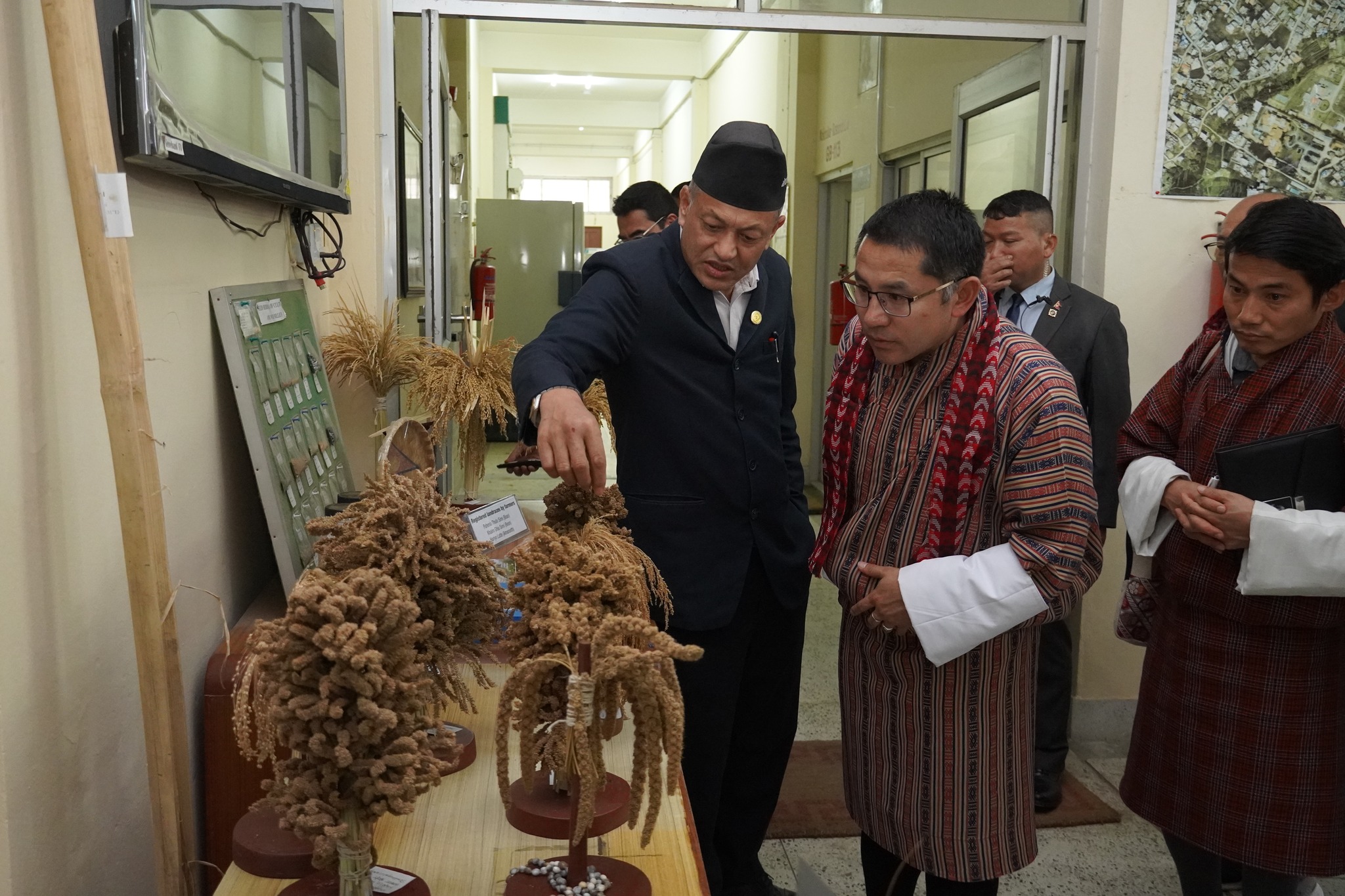Kathmandu . In a significant stride toward strengthening regional agricultural collaboration, a high-level delegation from the Royal Government of Bhutan, led by Hon’ble Lyonpo Younten Phuntsho, Minister of Agriculture and Livestock, visited Nepal’s National Agriculture Genetic Resource Center (Genebank).
The visit marked a key moment in the ongoing efforts to enhance sustainable food systems and promote climate-resilient agriculture across South Asia.
Accompanying the Bhutanese delegation were representatives from the Food and Agriculture Organization (FAO) of the United Nations, including Mr. Ken Shimizu, the FAO Representative for Bhutan and Nepal, along with other senior members of the FAO team.
The visit formed part of a broader regional cooperation initiative aimed at advancing agricultural research, genetic conservation, and innovation-driven development.
During the visit, Dr. Balkrishna Joshi, Chief of the Nepal Genebank, along with senior officials from the center, welcomed the delegation and provided a detailed briefing on the Genebank’s core responsibilities.
The presentation highlighted the center’s critical work in conserving and managing agricultural genetic resources, which form the backbone of food security, sustainable agriculture, and climate adaptation efforts in the region.
The Genebank’s initiatives, which include the preservation of native crop varieties, research into climate-resilient species, and the promotion of agrobiodiversity, were of particular interest to the visiting delegation.
Discussions emphasized the importance of sharing knowledge and resources among neighboring countries to address common challenges such as climate change, biodiversity loss, and food insecurity.
The visit underscored the shared commitment of Bhutan, Nepal, and the FAO to deepen cooperation in sustainable agricultural development.
By fostering stronger regional ties and promoting innovation in genetic resource management, the partnership aims to enhance the resilience and productivity of food systems across the region.
This collaborative engagement reaffirms the pivotal role of institutions like the Genebank in securing the future of agriculture and ensuring that regional food systems can withstand the growing pressures of climate change and environmental degradation.


